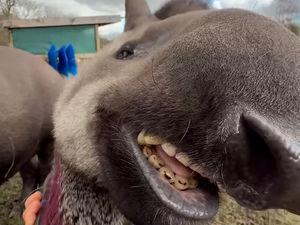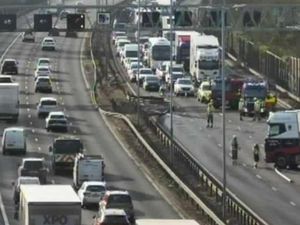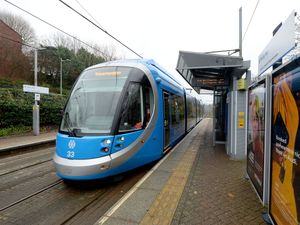Your Say survey results - Your safety
See the results from day four of the Your Say survey, after we asked you about safety in your area.
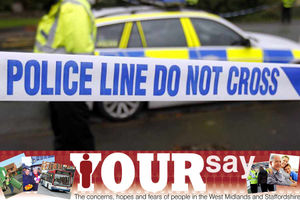
Courts need to get tougher when sentencing criminals, according to an overwhelming nine out of 10 Express & Star readers.
Today the Your Say Survey, the biggest independent survey ever carried out in the West Midlands, looks at people's safety and their biggest concerns over crime.
Asked if courts were imposing the right kind of sentences, 89.1 per cent of respondents said there should be tougher sentences while one 0.7 per cent believed sentencing was too tough and 10.2 per cent were satisfied that justice was being served.
See more Your Say survey results
Perhaps unsurprisingly, almost every single person to respond to the Your Say survey on Safety (97 per cent) felt that homeowners should be allowed to use force to protect their property.
Meanwile, eight out of 10 people have rejected new police and crime commissioners just a few months into the job.
79 per cent do not support the creation of the newly elected police and crime commissioners.
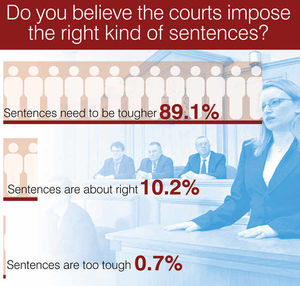
The new breed of politicians were brought in with the power to set force budgets, determine policing priorities and to hire and fire Chief Constables.
But turnout for the elections was as low as 12 per cent in the West Midlands and Staffordshire, meaning that the vast majority of people had not been involved in choosing who should get the job.
The survey also revealed that anti-social behaviour, such as nuisance neighbours, yobs on street corners and drug dealers, is now the main problem people experience where they live.
The Your Say results today reveal that 42.1 per cent of people consider it their biggest concern when it comes to their safety. A further 26.3 per cent worry about burglary in their area while vandalism is a problem for 10.1 per cent.
Anti-social behaviour covers a range of issues and is defined by West Midlands Police as being about nuisance neighbours, rowdy and nuisance behaviour, yobbish behaviour and intimidating groups taking over public spaces, vandalism, graffiti and fly-posting, people dealing and buying drugs on the street, people dumping rubbish and abandoning cars, begging and anti-social drinking, the misuse of fireworks and the misuse of mini-motorbikes.
The force says it takes anti-social behaviour very seriously because it has a "negative impact on the daily lives of our communities".

Police officers use various measures to deal with it, from imposing fines and making arrests to confiscating vehicles and working with councils to tackle problem families. Measures that can be used by the police and other agencies include warning letters and interviews, contracts and agreements, fines, parenting orders, noise abatement notices, injunctions, dispersal powers and anti-social behaviour orders (Asbos) that ban people from going to certain places or carrying out a particular activity.
Orders are currently being sought in Wolverhampton city centre to ban a group of nuisance drinkers from gathering at the junction of Market Street and Queen Street, near Jobcentre Plus, after people reported concerns over the drinkers lurking with dogs. Meanwhile, plans are being progressed to introduce city-wide powers for police to confiscate drink from anyone they believe is a nuisance.
While not an outright ban on drinking alcohol in the street or in public spaces, it will mean the police can take action against people they think are causing a nuisance if they refuse to hand over their booze. In Bilston the scheme was introduced last summer and drink was removed from people on more than 60 occasions in three months.
Despite these concerns, the West Midlands is an area where 66.7 per cent of people feel "fairly safe" close to home. Around 14.8 per cent admit to feeling not very safe, while a similar number – 15.8 per cent – feel very safe. Just 2.7 per cent say they feel "very unsafe".
For most people, a cautious assessment of their safety goes hand in hand, with 66.1 per cent saying they would be prepared to go out in the area where they live after 6pm. But slightly more than two thirds – 69 per cent – say they do feel intimidated when they see groups of young people, meaning that we are perhaps not as bold as we might like to think, while 31 per cent are not concerned when they see young people hanging around.
Almost three quarters of our readers – 73.5 per cent – say they have not been victims of crime in any way in the past five years.
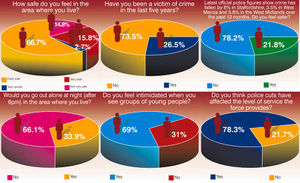
More than three quarters of people – 78.2 per cent – do not feel any safer despite figures saying that crime across the region is falling. Since our survey questions went live, newer figures were released showing that recorded crime has fallen even further. But the Office of National Statistics has said that police records appear to "overstate the actual level of reduction experienced by the general population".
Across the West Midlands force area, crime was down 13 per cent between September 2011 and September 2012. Criminal damage was down 18 per cent, while burglary dropped by 11 per cent and robbery fell 32 per cent. Out of 177,675 recorded crimes, 26,119 were burglaries, while 39,359 were "other theft offences".
In Staffordshire, there was a general drop of five per cent. There was a total of 63,300 reports of crime in Staffordshire between September 2011 and September 2012. But there was an 11 per cent rise in sexual offences, with police responding to 969 cases over the past year, and a 13 per cent rise in drug offences – a total of 3,467 reported crimes.
Nationally, overall crime fell by eight per cent – about 800,000 – to 8.9 million in the year to the end of September.
Chief Supt Jon Drake of Staffordshire Police said the force had managed to get burglary, theft and other acquisitve crime down by eight per cent by increasing patrols under Operation Impact.
He said: "The fall in crime is a testament to the ongoing good work across our area by police officers, police community support officers, police staff, community safety partners, specials and other volunteers.
"We're working more closely than ever before with partner agencies to ensure local communities are safe and reassured.
"Our drive to combat serious acquisitive crime through Operation Impact has paid dividends, with house burglaries alone falling by over eight per cent. We're continuing to use Impact to prevent and combat burglary, car crime and robbery and would urge residents to help us help them by making life difficult for crooks and cutting out opportunities for crime. They can do this by making sure cars are locked, not leaving items on display and removing them from the car where possible.
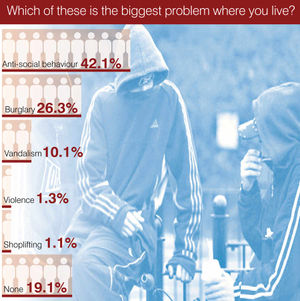
"We're also involved in ground-breaking projects to reduce crime such as the Integrated Offender Management scheme with the Probation Service. This is helping criminals address their behaviour and prevent repeat offending, benefiting communities as a result. We value feedback from our communities and strive to provide a high level of service. Nine out of ten victims of crime and anti-social behaviour said they were satisfied with the overall service they got from Staffordshire Police.
"Reducing violent crime continues to be one of Staffordshire Police's top operational priorities in 2013.
"Our licensing teams are working with partners in all town and city centres to prevent and tackle alcohol-related violence across the force area. We're equally committed to tackling anti-social behaviour in local communities, and it's very pleasing that the number of ASB victims who are satisfied with the overall response our officers provide remains high.
"The latest crime figures reflect our ongoing determination that local communities in Staffordshire remain safe places to live and work."
Meanwhile, cuts in police funding, which have seen long-serving officers forced to retire, have affected the level of service people feel their forces can provide, the E&S Your Say Survey also reveals today.
A total of 78.3 per cent of respondents to the survey on Your Safety say they have noticed a difference since cuts began to take effect in 2011 despite most respondents saying they do feel generally "fairly safe" but Stafford Police and Crime Commissioner Matthew Ellis believes this is down to campaigns being run by Police Federation branches who are opposing cuts.
The figure is in contrast with the results of the E&S Your Say Survey on Services on Monday, which showed almost half of people had not noticed the difference following cuts to councils.
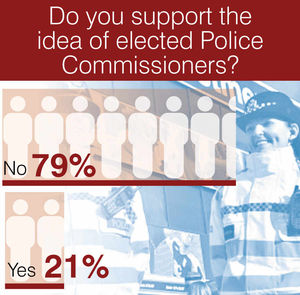
Mr Ellis said: "The Local Government Association did no campaigning at all, whereas the Police Federations have swamped the media and every news programme. We're still going to lose a number of officers but I'm going to make massive improvements in technology to ensure officers are able to get information, wherever they are, and spend more time out policing."
West Midlands Police has had to draw up cuts of £126 million over four years and has lost 814 officers since 2010 while Staffordshire Police is cutting £34m in a move that will see the number of officers fall to 1,750 compared with a peak in 2006 of 2,347. West Mercia is sharing resources with Warwickshire, and up to 200 police officers and 450 civilian staff will be leaving both forces by 2016 and will not be replaced.
Police forces across the region forked out £30.5m on overtime costs in the past year – despite getting rid of hundreds of officers.
West Midlands Police spent more than any of the three forces in the region, splashing out £20.4m, which was £2.8m more than the previous year.
Over those two years, the force lost 655 officers because of government spending cuts.
Staffordshire Police saw its overtime bill swell to £5.8m by the end of April last year, from £5.1m the year before. At the same time, it lost 173 officers.
A similar pattern emerged at West Mercia Police, where overtime costs hit £4.3m, compared with £3.8m during the 12 months before. Over the two years, it lost 207 officers.
Wolverhampton-based Supt Mark Payne said: "It's encouraging that the majority of people across the region feel safe and have not been a victim of crime in recent years.
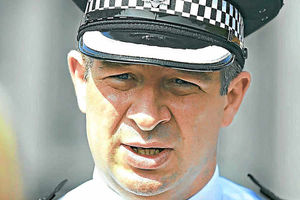
"Burglary is down across the Black Country, most notably in Sandwell where there have been 282 fewer victims since last April compared to the same period the previous year – that equates to a reduction of 19 per cent.
"And robbery is down considerably across the region, including by more than a third in Wolverhampton.
"These are 'benchmark' crimes – ones that victims would almost certainly report to police – and so provide a very accurate picture.
"People in the Black Country are less likely now to be victims of burglary or robbery than at any time in recent history, and hopefully that is very reassuring for residents.
Concerns
"We understand anti-social behaviour is an issue in certain parts of the Black Country – we are working hard to tackle nuisance behaviour and would encourage people to report any problems to us on the 101 number.
"There are 85 neighbourhood policing teams across the Black Country – stretching from Brownhills and Tettenhall in the north to Stourbridge in the south – consisting of PCs and PCSOs who are committed to addressing local concerns and helping create safe, pleasant places to live.
"They work closely with local councils and housing providers and together can tackle nuisance neighbours through anti-social behaviour orders and, ultimately, eviction should problem tenants not co-operate.
"Neighbourhood officers are supported by police Community Action Teams – additional officers used to reinforce campaigns or combat ongoing issues – and 24-7 response units are on standby to respond to emergencies.
"There are several examples illustrating how we're tackling ASB, including securing Home Office funding for a dedicated ASB van in Wolverhampton fitted with CCTV which enables us to record individuals responsible for causing problems and use the footage to help secure court convictions."
He said that despite the cuts, work would still take place to keep officers on the beat.
Supt Payne added: "Neighbourhood policing is a firm West Midlands Police priority, despite the funding cuts, and the force is committed to keeping as many police officers on the beat as possible in our communities in order to cement trust and confidence in the service.
"We have implemented various programmes designed to cut bureaucracy, eliminate work duplication, increase efficiency and free up officer time to concentrate on community policing and crime fighting."

